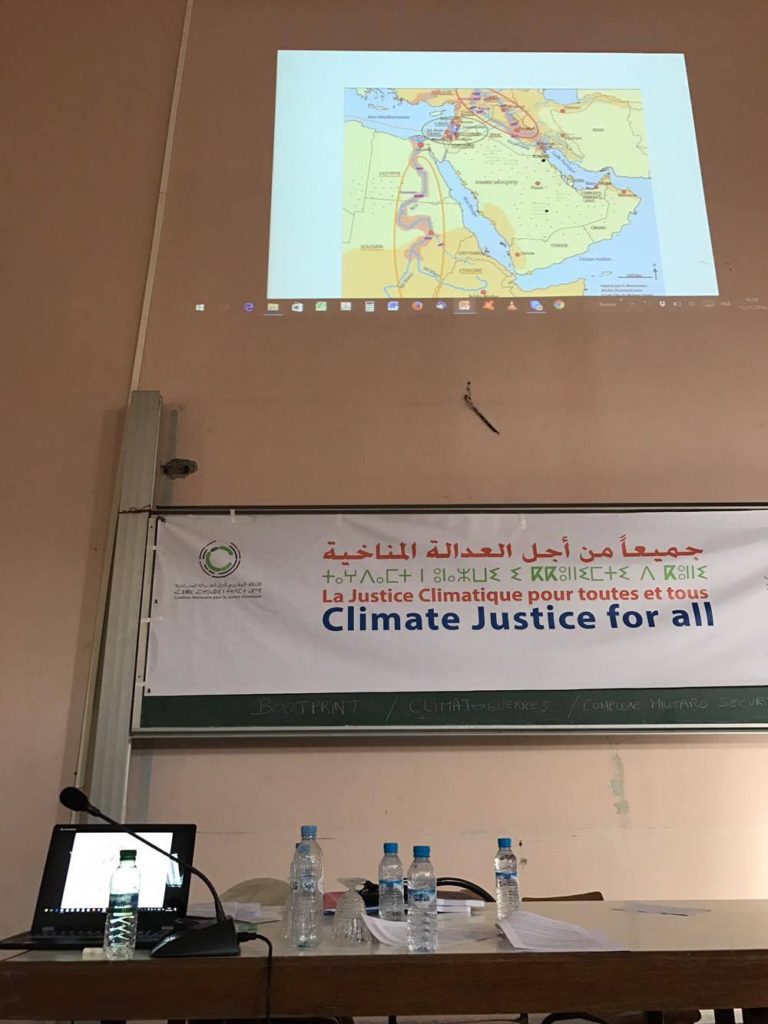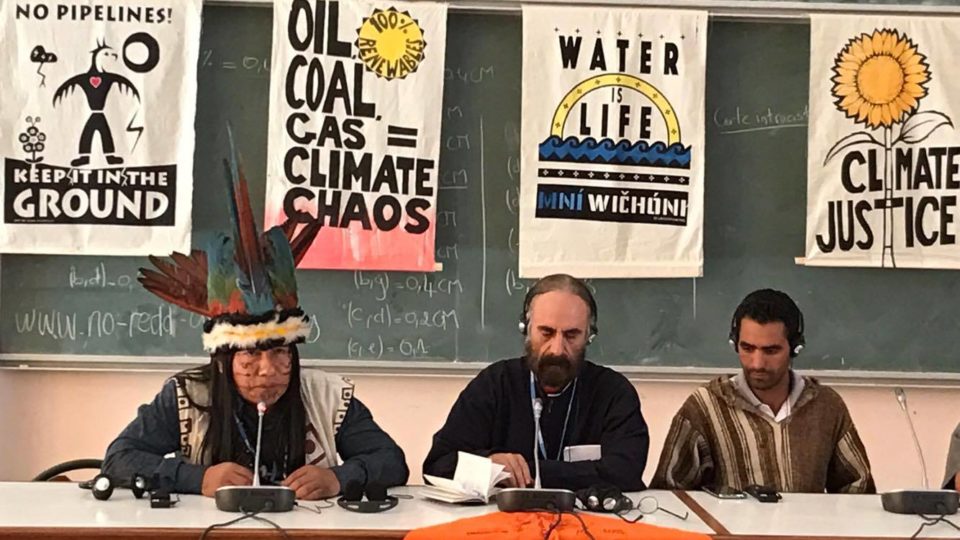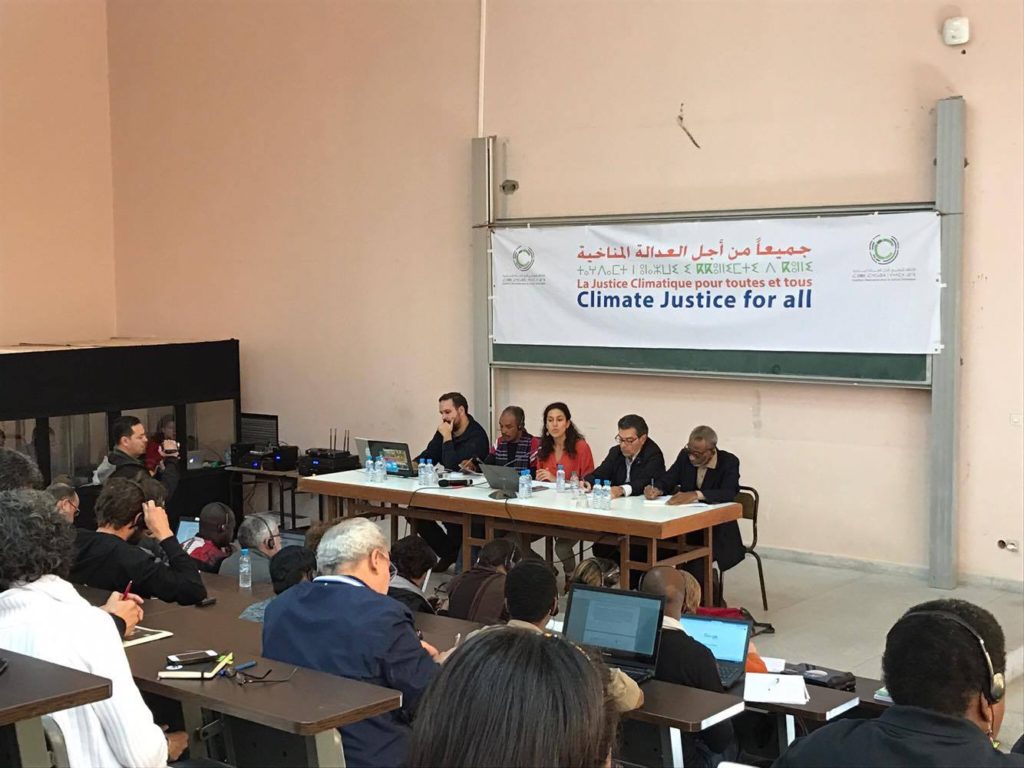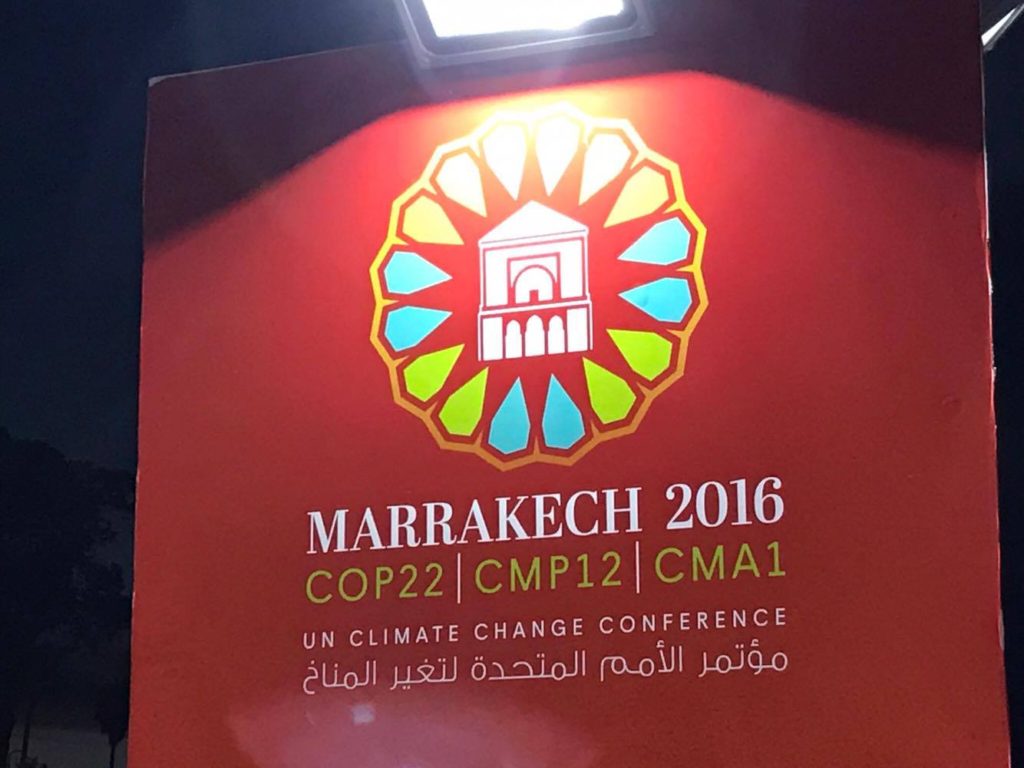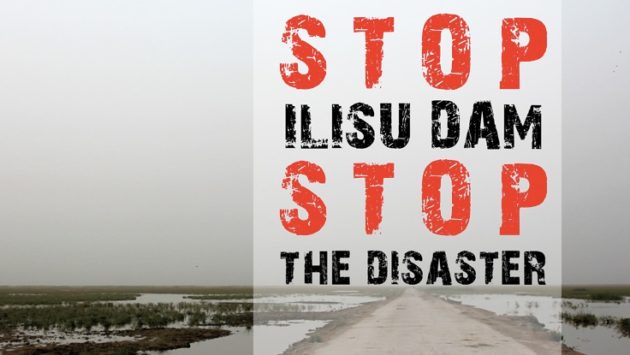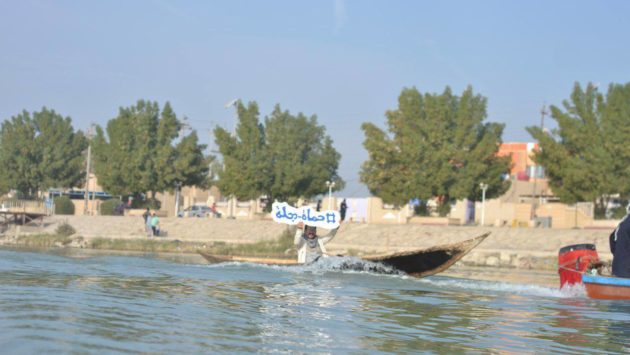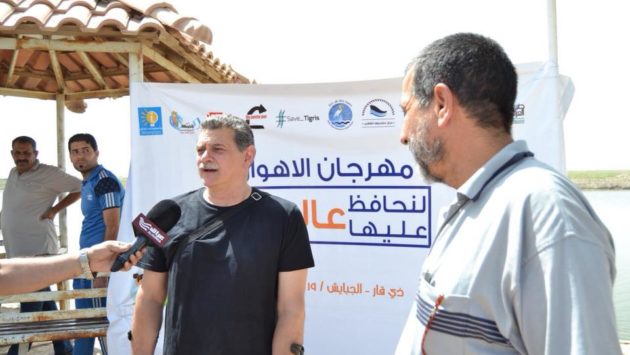Extractivism, environmental migration and water conflict: civil society reflects at the COP22
By Toon Bijnens, Save the Tigris and Iraqi Marshes Campaign
2016 will be the hottest year recorded in human history, and the world is looking for urgent action on climate change. Under the principles of mitigation and adaptation to climate change, the COP22 (UN Climate Change Conference) took place in Marrakech, Morocco (7-18 November). No agreement was reached between the north and south of the world on the aids the most vulnerable countries need to adapt to climate change. This demonstrates that governments and corporations are still unable to move rapidly ahead; civil society remain important action-makers to instigate the necessary change.
In addition to the official summit, an alternative ‘autonomous space’ was organized dedicated to social movements, associations, networks cooperatives in order to share experiences, resistance and consolidate struggles that threaten the earth, including daily moments of convergence. The COP22 was a moment for civil society to reflect on the current climate crisis. Just as last year in Paris, the Save the Tigris Campaign attended this space in order to make the struggle in Iraq known globally. The campaign had its own stand at the civil society space and presented a session about water scarcity in Iraq.
At the COP22, 3 themes in particular were relevant for Iraqi civil society:
- In a large seminar the system of extractivism was analyzed, including the impact of extracting high-demand resources from a territory on water and populations. Speakers from Latin America, Morocco and the USA (Standing Rock protest) discussed popular resistance and the fight against the expansion of the extractivist system. As an oil-rich country, Iraq has experienced extractivism first-hand. I refer to oil pollution south of Hawizeh Marshes as well as other regions.
- A complex topic that has become very relevant and urgent recently is environmental migration. In various sessions, the issue was addressed, mostly from the viewpoint of the Maghreb and the Sahara. In Iraq the issue has become more pressing as the effects of climate change and water scarcity become apparent. In particular the Marsh Arabs have been the victims of environmental migration in recent decades, moving from the wetlands to cities and other governorates, due to drought in their homeland of the Marshes.
- The campaign gave a talk about the securitization of water and militarization of water resources in the seminar “”Guerres, Armées, Climat” together with Bernard Dreano (chair of the Cedetim – Center of international solidarity initiatives and studies). The session focused on the carbon footprint of the military, as well as how environmental crises exacerbate conflict. In Iraq, as well as neighbouring countries Turkey, Syria and Iran water resources have become strategic assets, and control over water flows has been used as a tool in military and political conflicts between countries and regions. Dam construction to control water flows continues at the expense of populations.
Civil society in the Maghreb has shown itself to be very strong and well-organized at the COP22. Having organized themselves in the Moroccan Coalition for Climate Justice (MCCJ) and held numerous seminars at the civil society space, it is clear that a genuine environmental movement exists in Morocco and neighbouring countries. African and Mediterranean coalitions were built during the summit. Middle-Eastern countries however have been largely absent. It should be noted that and Iraqi civil society delegation was set to be present, but due to the absence of a Moroccan embassy in Iraq, to obtain a visa was impossible. Nonetheless as one of the regions worst-hit by climate change in the world, the presence of Iraq and its neighbours is essential to expose and combat the excesses of climate change which are very much apparent this region. Their experience needs to be shared and this summit offered an opportunity for the Save the Tigris Campaign and global civil society to learn about these excesses, reflect and build action.
